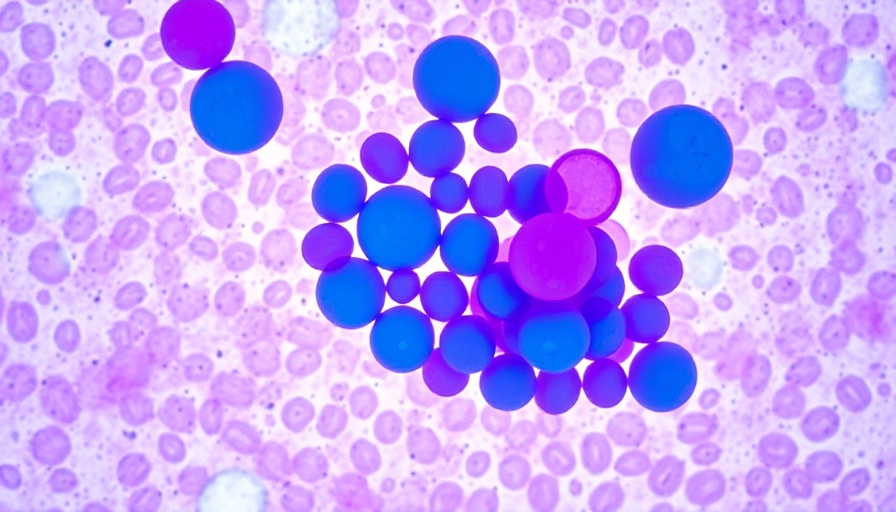
Understanding the Impact of Taletrectinib on NSCLC Treatment
On June 11, 2025, the FDA approved taletrectinib (Ibtrozi, Nuvation Bio) for the treatment of locally advanced or metastatic ROS1-positive non-small cell lung cancer (NSCLC). This approval marks a significant advancement in cancer therapy, particularly for a patient population that has limited options and often experiences poor prognosis. With a unique focus on treating a rare oncogenic rearrangement affecting about 2% of NSCLC patients, taletrectinib stands as a beacon of hope for many.
The Science Behind Taletrectinib
Taletrectinib is categorized as a next-generation ROS1 tyrosine kinase inhibitor (TKI), distinguishing it from the first-generation treatments, crizotinib and entrectinib. Its development stems from the necessity to improve outcomes for patients struggling with ROS1-related diseases, where the corresponding gene rearrangements create abnormal fusion proteins that fuel cancer growth. By blocking the activity of these fusion proteins, taletrectinib helps to halt cancer progression.
Breakthrough Therapy Designation
Similar to its competitor repotrectinib, taletrectinib earned a breakthrough therapy designation from the FDA, underscoring its potential to provide significant improvement over available therapies. The drug's advantageous profile includes enhanced brain penetration, a lower incidence of neurologic adverse events, and a reduced likelihood of developing resistance, making it an attractive option for oncologists dealing with challenging cases of ROS1-positive NSCLC.
A Deep Dive into Clinical Data
The drug’s approval was supported by robust clinical studies, namely TRUST-I and TRUST-II. The pooled analysis of these Phase 2 studies highlighted striking response rates: 90% for treatment-naive patients in TRUST-I and 85% in TRUST-II. Furthermore, the duration of response (DOR) was reported to be over a year for a considerable proportion of responders, showcasing the efficacy of taletrectinib.
For those who had prior treatment, the response rates remained substantial, at 52% for TRUST-I and 62% for TRUST-II. This provides clinical evidence that even previously treated patients can benefit from this novel therapy, presenting a significant turn for individuals facing dwindling options.
Taletrectinib's Profile Among Competitors
What makes taletrectinib particularly noteworthy is its safety profile. The most commonly reported treatment-emergent adverse events, primarily gastrointestinal issues, are consistent with many cancer therapies, but they are manageable. By prioritizing tolerance and efficacy, taletrectinib may likely shape the future treatment landscape for not just ROS1-positive NSCLC but for other oncological conditions as well.
Future Implications for NSCLC Patients
Research indicates a third of ROS1-positive NSCLC patients develop brain metastases, making brain penetration capabilities a vital aspect to consider when treating this population. The innovative mechanisms of taletrectinib may soon place it at the forefront of treatment paradigms, as oncologists look for solutions to enhance survivorship and quality of life for patients.
Conclusion: A New Era in NSCLC Treatment
The approval of taletrectinib signals the dawn of a new era in the treatment of ROS1-positive NSCLC. As Nuvation Bio prepares for a mid-2025 launch in the US, many in the medical community expect that this next-generation TKI will redefine treatment standards, providing hope to patients and families grappling with this challenging diagnosis.
 Add Row
Add Row  Add
Add 



Write A Comment